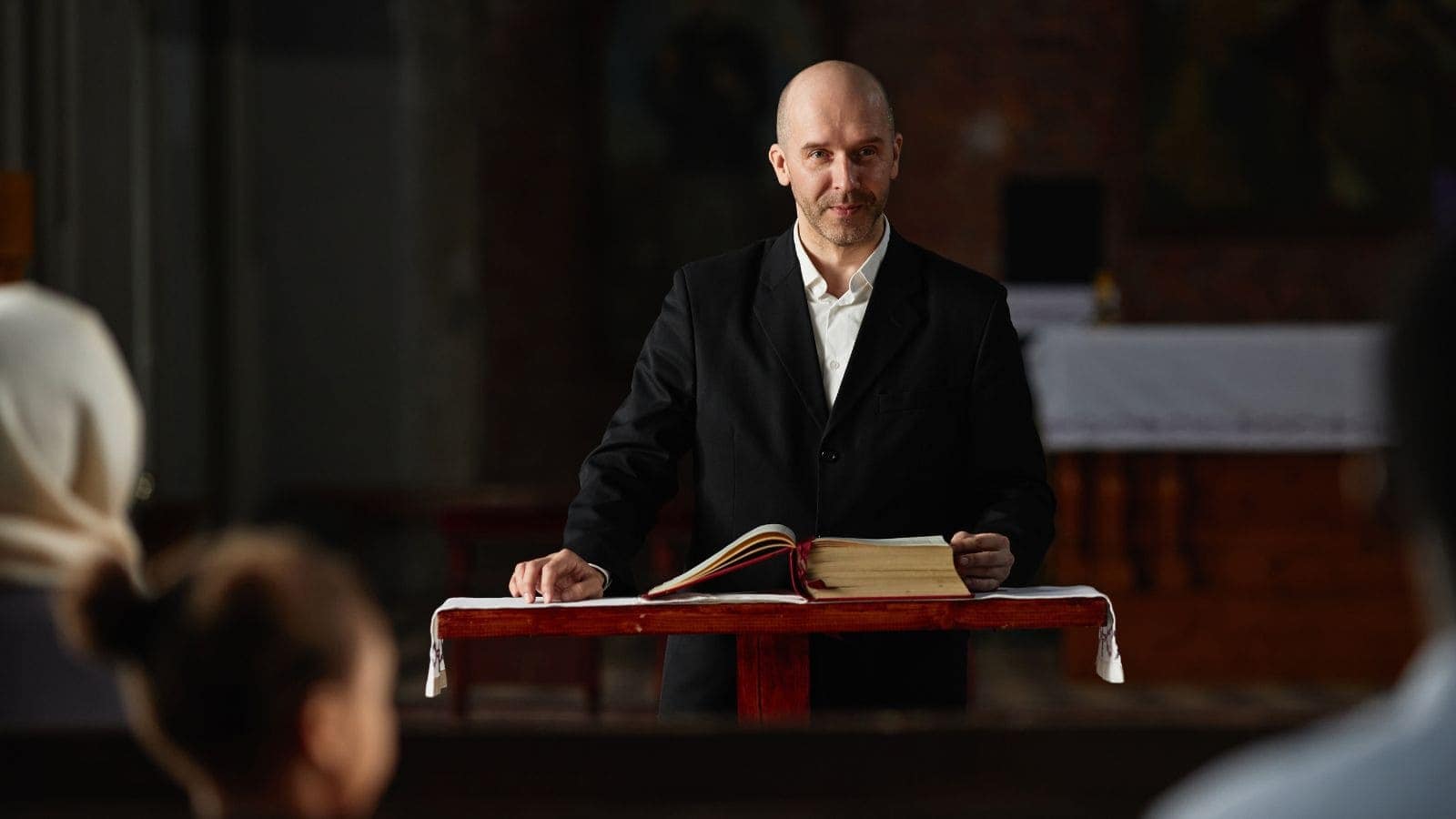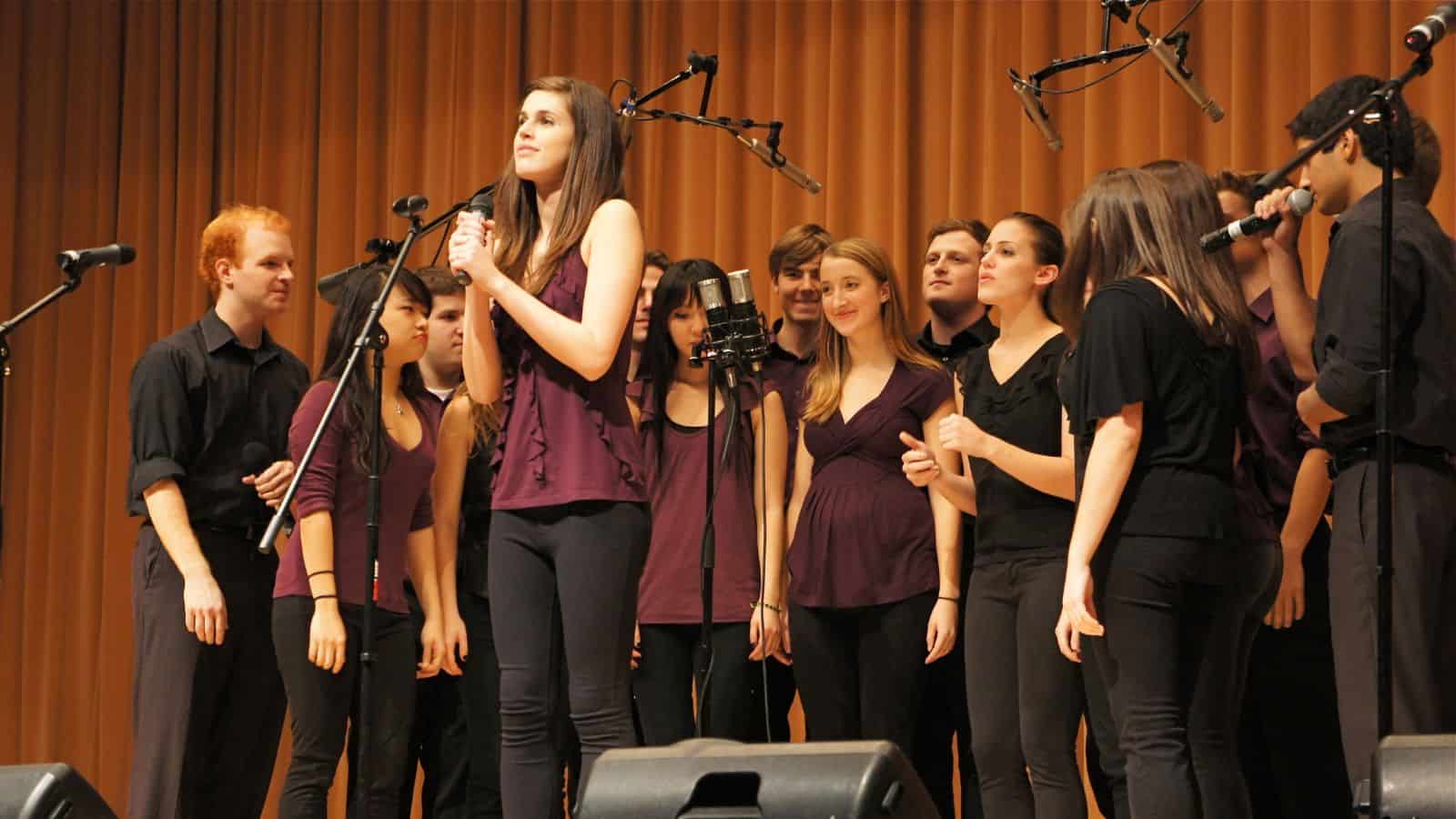Founded by Jesus of Nazareth around 2,000 years ago, Christianity is the world’s most popular modern religion, with over 2.4 billion followers! Yet modern society has changed a lot in the last two millennia, making some traditional Christian ideas and practices outdated and irrelevant. Here are 18 old-fashioned Christian ways of doing things that now seem increasingly nonsensical.
Strict Dress Codes

In the past, formal attire was practically mandatory for Sunday services, with many families reserving their most formal, highest-quality garments for ‘Sunday best.’ This showed respect and reverence for days of worship, but it could make church-going restrictive and uncomfortable. A more relaxed dress code is the norm today, although cleanliness and neatness remain important.
Fear-Mongering Sermons

Fire and brimstone sermons that attempted to threaten and shame wrongdoers or non-believers were once a defining feature of Christian preaching. Nowadays, 9Marks says, “Preaching about hell is manipulative. It’s a scare tactic. It’s fear-mongering.” Modern sermons tend to focus on love, forgiveness, and helping others rather than eternal damnation if you don’t!
Non-Inclusive Language

For centuries, Christian scripture and liturgy used predominantly masculine pronouns and language, focusing heavily on the man in mankind and ‘his’ way. This doesn’t reflect our more progressive society, where men and women are more equal. There’s now a growing movement towards inclusive language that reflects the congregation’s diversity.
Strict Divide Between Clergy & Common Folk

In the past, there was a clear distinction between the clergy (priests, ministers, etc.) and the congregation. Those in authority often limited the involvement of lay people in church life beyond passive attendance. Modern churches are moving away from this, encouraging attendees to lead worship, teach Sunday school, and serve on committees.
Science & Faith at War

Science and faith were historically seen as enemies of one another, locked in a fierce battle for the minds of the people. For example, the theory of evolution proved how nonsensical it was to literally believe in the six-day creation story, as described in the Bible. Today, many Christians accept that science can explain how our world works and that it can coexist alongside faith.
No Questions

Questioning religious teachings was once frowned upon and even punished as a direct challenge to God. This discouraged open discussions about faith, spirituality, and the meaning of religious texts. Modern Christianity not only allows questions but also encourages them, allowing followers to express doubts, explore their faith, and interpret the Bible in their own way.
Fun Is Sinful

Specific forms of entertainment (like dancing, playing cards, or watching movies) are sometimes considered frivolous or sinful by strict Christian denominations. Onward in the Faith asserts that the Bible doesn’t forbid fun, only debauchery, sexual promiscuity, and gambling. Many modern Christians enjoy their leisure time and have fun doing permitted activities.
Women Can’t Be Leaders

Traditionally, women’s roles in church life were restricted. They were often excluded from positions of authority or limited in the ways they could meaningfully contribute to church life and Christian rituals. Today, many denominations (especially lenient, modern ones) ordain women as pastors and allow them to fulfill leadership, preaching, and pastoral care roles.
Public Shaming

Contrary to the Bible teachings about forgiveness and redemption, some Christian communities used to engage in public shaming and punishments for members who had been found guilty of non-illegal sins, like adultery and drinking. This aimed to ‘make an example’ of sinners and maintain control. Modern churches tend to offer spiritual support and guidance instead.
No Inter-Faith Marriage

Christians were once forbidden from marrying outside their faith, and this strict rule is still enforced in strict denominations and several other religions. Today, most Christians are not so restricted. Many churches accept and even celebrate interfaith marriages, so long as the couples are loving and respectful of one another’s beliefs.
Strict Hierarchies

Like many traditional institutions, the Christian church was historically dominated by men and had a strict, deeply ingrained hierarchy. There was little room for shared leadership or collaboration, and most decisions were made by the highest authorities and passed down as law. Modern churches are far more flexible and often involve their constituents in decision-making.
Focus on Internal Affairs

In the past, churches focused primarily on internal matters like worship and religious education. Yet, George Fox University claims that social outreach and community projects should be core to Christian values, offering compassion and kindness to those in need. Many modern Christians volunteer, advocate for the poor, or help support environmental protection.
Taking the Bible Literally

The Bible was traditionally considered completely literal and its teachings unquestionable, but modern Christians often see the lunacy in this and believe the text is open to interpretation. Contemporary biblical scholars acknowledge the relevance of historical evidence and timeless lessons but do not think the Bible should be taken literally, especially nowadays.
The Concept of Original Sin

This concept maintains that all humans are inherently sinful due to Adam and Eve’s original disobedience in the Garden of Eden. What a heavy burden! It can lead to feelings of guilt and worthlessness. Most modern Christians now emphasize God’s love and the importance of living a ‘good’ life free of deadly sin and often preach redemption through faith in Jesus Christ.
LGBTQ+ People are Sinners

Homosexuality has always been historically condemned by almost all Christian denominations, with followers claiming it is a ‘violation’ of God’s plan. Today, the happiness of same-sex unions and the growing tolerance of homosexuality in modern society have led progressive churches to be more inclusive and reject biblical scripture that condemns alternative romantic lifestyles.
Speaking in Tongues

In the past, speaking in unknown languages (officially known as Glossolalia) was a sign that a person was filled with the Holy Spirit. This even became a defining trait of certain Pentecostal movements. Modern Christians have more or less abandoned the idea, though, focusing on the Holy Spirit as evident in teaching, prophecy, and religious service.
Sunday School for Adults

Traditional Sunday Schools often included adult learners, but the lessons tended to be too simplistic and borderline patronizing, with activities that were more suited for infants. Today, there’s a growing emphasis on adult Christian education, but the courses offered are far more intellectual—they explore the meaning of scripture and teach modern theology.
Traditional Choirs are the Only Music

Church music was once dominated by traditional hymns sung by choirs, specifically male voice choirs made up of prepubescent boys. Nowadays, Modern Reformation claims many churches have embraced other kinds of music and performances, including contemporary Christian rock music, praise bands, instrumental pieces, and highly expressive and uplifting gospel choirs.
Up Next: 18 Worrying Facts About Life in Medieval Times

The Middle Ages, also known as the medieval period, lasted from 500 AD to 1500 AD and is usually subdivided into the Early, High, and Late Middle Ages. Life in the medieval period was often brutal, with gruesome punishments, wars, and plagues. Here are 18 terrifying facts about life in the medieval period.
18 Worrying Facts About Life in Medieval Times
19 Easy Ways to Fall Back Asleep After Waking Up in the Middle of the Night

We’ve all been there—it’s dark, quiet, and you’re tired, but you’re still constantly tossing and turning, only to finally fall asleep minutes before the alarm goes off! Waking up throughout the night isn’t just frustrating; it also seriously impacts your energy levels. This article focuses on 19 scientifically proven methods that may help you drift back off more easily.
19 Easy Ways to Fall Back Asleep After Waking Up in the Middle of the Night
17 Things That Are Too Woke For Boomers

Our society is so different from what it was decades ago, and boomers don’t like much of what everyone considers normal in today’s society. In this light, here are 17 things about ‘woke culture’ that particularly make boomers uncomfortable.
